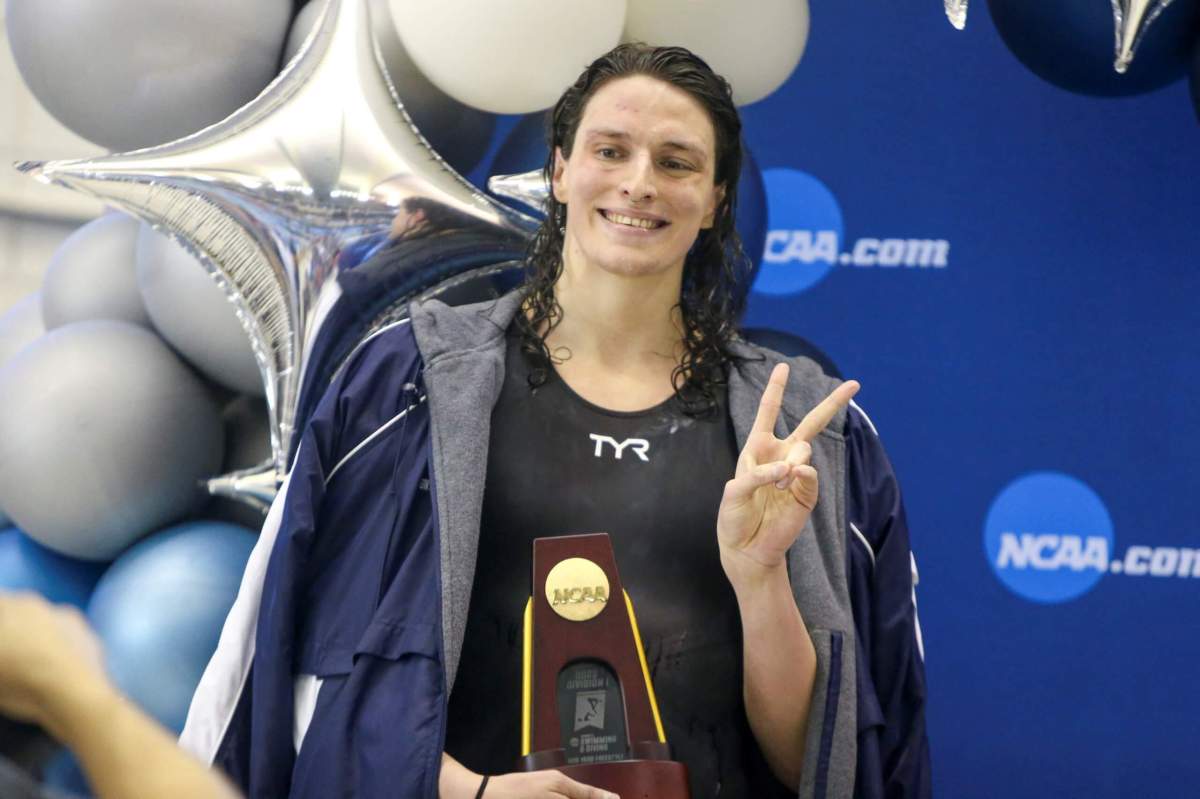University of Pennsylvania swimmer Lia Thomas emerged victorious in the 500-yard freestyle championship at Georgia Tech on March 17, becoming the first out trans athlete to secure a Division I national title.
Thomas finished in four minutes and 33.24 seconds — her best time of the season — but it was no breeze. Thomas fell behind the competition in the early part of the race, but managed to claw back and catch up to Emma Weyant of Virginia. Thomas pulled away in the final stretch to secure the win.
“It means the world to be here,” Thomas said to ESPN’s Elizabeth Beisel following the competition.
On March 18, Thomas qualified for another final at the NCAA Championships when she landed the second seed for the 200-yard freestyle race slated to take place on March 18, but she finished in fifth place.
Thomas’ historic feat represented a significant step forward for trans representation in college sports at a time when conservatives have ramped up discriminatory legislation aiming to kick trans student-athletes off playing fields in numerous states across the nation.
The political attacks on trans Americans have coincided with the marginalization of trans student-athletes. Conservatives, backed by right-wing news outlets, have fueled narratives that trans girls and women are impeding on the rights of cisgender athletes — and Thomas has been at the center of attention, even as she has abided by the rules for her competitions. Notably, Thomas has also lost races, further shattering the notion that she commands an unfair advantage in the pool.
The raging debate over trans inclusion in sports has appeared to target Thomas in a manner that has resembled the treatment of out lesbian South African Olympic runner Caster Semenya, who was effectively pushed away from competing after enduring years of invasive sex testing and legal battles over rule changes that were clearly designed to restrict her ability to compete.
New, controversial NCAA rules unveiled in January called on individual sports to follow national governing bodies when determining rules for trans inclusion — and USA Swimming’s new policy stipulated that trans athletes should have to follow specific testosterone limits for three full years before competing. That was a significant departure from the one-year testosterone limitation previously imposed on college athletes and would have created barriers t0 Thomas’ future participation. In the face of widespread pressure, the NCAA in February at least temporarily backtracked and allowed Thomas to participate under the previous rules.
That, however, did not stop a group called Concerned Women for America from moving ahead with a Title IX complaint on March 17 alleging that the University of Pennsylvania is “refusing to protect the rights of college female athletes” by allowing Thomas to participate. Despite the suit, out swimmer Erica Sullivan, who faced Thomas on March 17, wrote an op-ed in Newsweek defending her rival.
“Like anyone else in this sport, Lia has trained diligently to get to where she is and has followed all of the rules and guidelines put before her,” Sullivan noted. “Like anyone else in this sport, Lia doesn’t win every time. And when she does, she deserves, like anyone else in this sport, to be celebrated for her hard-won success, not labeled a cheater simply because of her identity.”
Out trans athlete and coach Chris Mosier also expressed an affirming message for Thomas in a Twitter post on March 17.
“Lia Thomas met every requirement; she was in full compliance with every rule that the organization in charge of making rules had in place,” Thomas wrote. “But instead of celebrating her victory, you’ll see countless articles about the “debate” on her participation…”
Notably, Thomas is not the first out trans athlete to win an NCAA championship. Franklin Pierce University track and field athlete CeCé Telfer won a national title in the 2019 400-meter competition in Division II.



































